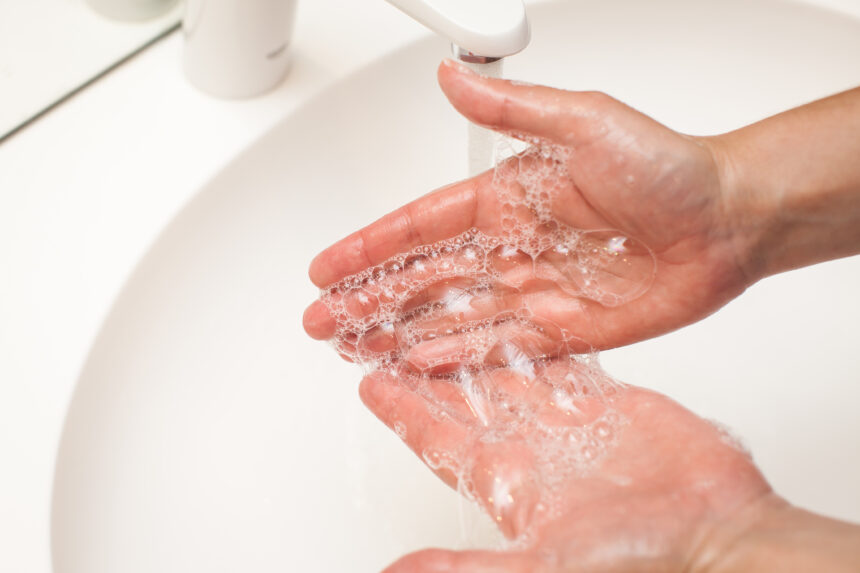
By Erin Dahlke, MD, Family Medicine
As we approach the season with a variety of respiratory illnesses, as well as the holidays, let’s get back to one of the basics. Keep your hands as clean as possible so as not to share your germs with others. Hand washing is still one of the best ways to prevent the transmission of disease so we can continue to be productive at work and enjoy doing the things we want outside of work.
Many of us don’t have good handwashing habits, with up to one-third of adults not washing their hands after using the bathroom. Did you know that up to 80% of infectious diseases are spread by touch? You can help prevent illness with clean hands.
When to wash your hands
There are good principles of hand hygiene to remember to help prevent the spread of illness and disease.
- Always wash your hands before you eat and before preparing food.
- Always wash your hands after using the bathroom, changing a diaper, caring for someone ill, touching an animal, or touching garbage.
- Avoid sneezing or coughing into your hands, or remember to wash them afterward.
- Keep your fingers from touching your mucous membranes; in other words, avoid touching your eyes, nose, or mouth.
How to wash your hands
According to the Centers for Disease Control and Prevention (CDC), these are the steps to remember when washing your hands.
- Wet your hands with clean running water and apply soap.
- Rub your hands together to make a lather and scrub them well, making sure to get the back of your hands, between the fingers, and under the nails.
- Continue rubbing your hands for at least 20 seconds, which is about the time that it takes to sing the “Happy Birthday” song.
- Rinse your hands well under running water.
- Dry your hands using a clean towel or air dry.
- To avoid recontamination, turn off the faucet with a towel and not your hands.
- If soap and water are not readily available, use a hand sanitizer that contains at least 60% alcohol.
As we spend time with family, friends, coworkers, and classmates, remember to protect yourself and others from illness by washing your hands and sharing this knowledge with others.

